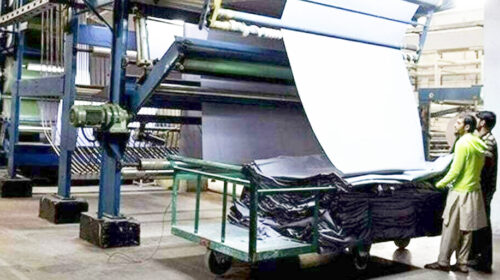The country’s apparel textile sector on Sunday warned the federal government of ‘disastrous’ implications for the economy if it discontinued the special power tariff to the five export-oriented sectors, saying that the IMF should be told the concessional facilities are not a ‘subsidy.’
The IMF should be informed that the special tariffs and DLTL are not subsidies rather ‘crucial’ export-policy decisions to unburden the export sectors from cross-subsidy to compete with competing nations in the global market.
“The IMF should be categorically communicated that special energy tariffs and other facility to export industry are wrongly interpreted as ‘subsidy’,” Pakistan Apparel Forum chairman Muhammad Jawed Bilwani said.
He warned the government that any ‘unwise’ decision following its talks with the IMF to discontinue special power tariff for five export-oriented sectors will be ‘disastrous’ for the economy.
The government should understand that the five export sectors are provided with the special energy tariffs at par with those given to industries in the regional countries to ensure the country’s products could compete globally.
Similarly, the DLTL (the Duty Drawback on Local Taxes and Levies) is also not a subsidy but a policy measure sparing export goods from taxes, he added.
Fate of subsidy to 5 export-oriented sectors hangs in the balance
With such a government policy, he said that textile export remained a top performer with $15.4 billion in 2020-21 and it fetched $15.98 billion with over 25 percent growth in 2021-22 (10 months).
Such a robust growth could become possible through the concessional energy tariffs at $6.5 mmbtu for RNLG and 9 cents for electricity, which was being provided previously to the industry at 7.5 cents, he said.
The government should honour its commitment to continue the concessional tariff for export industries beyond June 30, 2022 in ‘the national interest.’
“Therefore, the government should act very wise and thoughtful while taking any decision which will bring any negative impact on exports,” Bilwani said.
On the assurances and commitment of the government, he said that the value-added textile exporters invested ‘heavily’ to the tune of $700 million to expand their industries, besides purchasing new machinery during last 10 months.
“The regional countries offer much more benefits and incentives to foreign investors,” he said adding that only this export sector is performing and generating revenue and urban employment.
He called the country’s economic crisis “highly serious”, asking the government should act “wisely” and should refrain from interfere the export-sector. “Any adverse step will render this vital export sector to be become most uncompetitive in the international market,” he added.
The other unproductive sectors, which are consuming indigenous natural gas, should be shifted to LPG, he said. The apparel sector’s demand for concessional power tariff is “Constitutional” to attain protection guarantees and freedom of business and trade and a level playing field, he said.
He also warned that the continuation of concessional power tariff slab will help local industries perform better and any move to discontinue them may force manufacturing units to relocate abroad as happened in the past.







